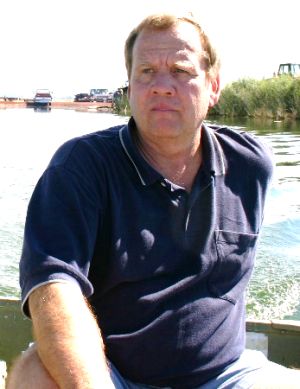
Honorary Membership was awarded in 2015 to Dr. David F. Spencer. David received his Ph.D. from the University of Notre Dame in 1978. He was as Assistant Professor of Biology from 1980-1984 at Indiana-Purdue University at Indianapolis. From 1984-2015, he was a Research Ecologist with the USDA ARS in Davis, CA doing research on aquatic plant ecology and management. David has been a member in good standing with the Aquatic Plant Management Society for more than three decades. He has served as a Director of the Aquatic Plant Management Society, served as Vice President, President-Elect, President, and Past President (1997-2000). He also served as President, board member and committee chair for the Western Aquatic Plant Management Society. He has been a frequent reviewer for the Journal of Aquatic Plant Management. David has had a significant impact on our understanding of aquatic plant ecology and management. He has published 109 journal articles during his career, many of these in the Journal of Aquatic Plant Management. David Spencer retired from the USDA ARS in January 2015.
Dr. Spencer worked on applied ecology of invasive plants. He conducted research on predicting distribution and response to biological control by Eurasian watermilfoil in a blue-ribbon California trout habitat. He also quantified growth/phenology and spatial modeling of Arundo donax. Dr. Spencer performed field experiments testing hypotheses about yellow starthistle nutrient status and plant-insect interactions as well as plant phenology. In addition, Dr. Spencer has examined spatial and temporal dynamics and management of algae in California rice fields; relationships between nutrient status and defense chemistry of Eurasian watermilfoil and native aquatic plants; and nutrient status and seed production by native submersed species. Dr. Spencer has performed research aimed at understanding the structure and functioning of vegetative propagule banks of submersed aquatic plants. Emphasis has been given to the invasive species, Hydrilla verticillata, and two native pondweeds (Potamogeton nodosus and Potamogeton pectinatus). Past field and greenhouse studies have identified the conditions which lead to propagule formation and the influence of sediment nutrients on vegetative reproduction; demonstrated the depth distribution of propagules and its influence on propagule survival and subsequent growth and competitiveness; the spatial distribution of propagules; the influence of the sediment environment on survival and sprouting of propagules; experimental design and sampling procedures for field studies of aquatic plants; propagule characteristics and their impact on subsequent growth; and attempts to manipulate propagule survival through manipulation of the sediment environment.